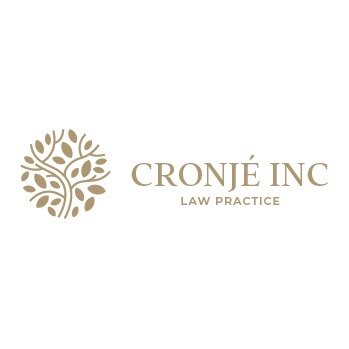Best Funds & Asset Management Lawyers in Windhoek
Share your needs with us, get contacted by law firms.
Free. Takes 2 min.
List of the best lawyers in Windhoek, Namibia
About Funds & Asset Management Law in Windhoek, Namibia
Funds and asset management law in Windhoek, Namibia, refers to the legal framework governing the creation, management, and regulation of investment funds and the assets within them. This area of law covers a range of investment vehicles such as unit trusts, mutual funds, pension funds, and collective investment schemes, as well as the activities of fund managers, trustees, and custodians. The regulation is designed to protect investors, promote transparency, and ensure that industry participants act in accordance with established standards.
In Namibia, the financial sector has experienced steady growth, creating an increased demand for robust legal oversight in funds and asset management. The regulatory environment supports both local and international investors, ensuring that their assets are managed efficiently and lawfully while fostering the stability of the overall financial market.
Why You May Need a Lawyer
Legal assistance is important in funds and asset management due to the complexity of the applicable laws and the significant value of assets involved. Here are some common situations where seeking a lawyer’s help is crucial:
- Creating or registering an investment fund or asset management company
- Ensuring compliance with relevant Namibian regulations, such as licensing and ongoing reporting
- Drafting or reviewing fund prospectuses, partnership agreements, management contracts, or trust deeds
- Structuring cross-border investments and navigating foreign exchange limitations
- Dealing with fund disputes involving investors, managers, or trustees
- Pursuing recovery of funds or assets in the event of fraud or mismanagement
- Advising on tax implications related to fund and asset transactions
- Assisting with due diligence for mergers, acquisitions, or restructuring of funds
- Guidance on changes resulting from new regulations or amendments
In short, a lawyer can help safeguard your interests and ensure regulatory compliance throughout the entire process.
Local Laws Overview
Funds and asset management in Windhoek are primarily regulated by the Namibia Financial Institutions Supervisory Authority (NAMFISA), which oversees the licensing, compliance, and conduct of all financial service providers.
Key laws and regulations include the:
- Unit Trusts Control Act 54 of 1981
- Financial Institutions and Markets Act 2 of 2021 (FIMA)
- Pension Funds Act 24 of 1956 (set to be replaced by sections of the new FIMA)
- Collective Investment Schemes Control Act (CISCA)
- Anti-Money Laundering and Combating the Financing of Terrorism Act 13 of 2012
These laws set out requirements for registration, disclosure, reporting, governance, risk management, and investor protection. They also define the obligations and powers of fund managers, custody services, and trustees. Since regulations are updated from time to time, it is critical to stay current to remain compliant.
Frequently Asked Questions
What is a collective investment scheme?
A collective investment scheme pools funds from multiple investors to invest in assets such as stocks, bonds, or property. These schemes allow investors to diversify their portfolios and access professional management.
Who regulates funds and asset management in Namibia?
NAMFISA is the main regulatory authority responsible for supervising and regulating the non-banking financial sector, which includes fund and asset management companies.
How do I register a fund in Namibia?
To register a fund, prospective managers must submit an application to NAMFISA, including documents such as trust deeds, management agreements, and compliance procedures. Approval is also subject to meeting fit and proper criteria for managers and trustees.
Are foreign investors allowed to participate in Namibian funds?
Yes, foreign investors can participate in Namibian funds, subject to certain exchange control regulations and compliance requirements set by the Bank of Namibia and NAMFISA.
What are the key compliance requirements for asset managers?
Asset managers must comply with anti-money laundering laws, maintain adequate capital, ensure fair treatment of investors, file regular reports with NAMFISA, and uphold sound risk management and governance standards.
How are disputes between fund managers and investors resolved?
Disputes may first be addressed through internal complaint mechanisms or alternative dispute resolution processes. If unresolved, matters can be escalated to NAMFISA or taken to court under Namibian law.
What protection do investors have under Namibian law?
Investor protection provisions include regulations on disclosure, transparency, reporting, restrictions on misleading advertisements, and requirements for independent trustees and custodians to safeguard assets.
Can funds invest in any asset class?
Funds must adhere to the permitted investment guidelines outlined in their founding documents and as regulated by NAMFISA. Some asset classes, such as derivatives or overseas investments, may require special approval or be subject to specific limits.
What happens if a fund manager violates the law?
Breach of fund management laws can result in administrative sanctions, financial penalties, suspension or revocation of licenses, and even criminal prosecution in cases of fraud or severe misconduct.
Is tax advice necessary for fund transactions?
Yes, tax laws can impact both fund structures and investor returns. Professional legal and tax advice is recommended to optimize the structure and avoid unexpected liabilities.
Additional Resources
If you need further information or support, consider contacting the following organizations and resources in Namibia:
- Namibia Financial Institutions Supervisory Authority (NAMFISA) - Supervises non-banking financial markets and offers guidance on compliance and registration.
- Bank of Namibia - Regulates banking activities, oversees foreign exchange controls, and provides macroeconomic policy guidance.
- Ministry of Finance - Directorate of Inland Revenue - Handles tax matters affecting funds, asset managers, and investors.
- Namibian Financial Services Industry Association - Represents the interests of financial service providers and offers educational materials.
- Registered local law firms specializing in financial markets and fund management.
Next Steps
If you are considering starting an investment fund, managing assets, or investing in a scheme in Windhoek, Namibia, the following steps are recommended:
- Assess your goals and investment needs to determine the appropriate type of fund or asset management service.
- Consult a qualified lawyer with expertise in Namibian funds and asset management law for tailored advice and due diligence.
- Engage regulated professionals for fund setup, such as licensed trustees, custodians, and administrators.
- Prepare necessary documentation, ensuring compliance with all local legal and regulatory requirements.
- Submit registration and application materials to the relevant authorities.
- Continuously monitor regulatory updates to remain compliant.
Legal guidance will streamline the process, minimize risks, and help you make informed decisions for your investments and asset management activities in Windhoek, Namibia.
Lawzana helps you find the best lawyers and law firms in Windhoek through a curated and pre-screened list of qualified legal professionals. Our platform offers rankings and detailed profiles of attorneys and law firms, allowing you to compare based on practice areas, including Funds & Asset Management, experience, and client feedback.
Each profile includes a description of the firm's areas of practice, client reviews, team members and partners, year of establishment, spoken languages, office locations, contact information, social media presence, and any published articles or resources. Most firms on our platform speak English and are experienced in both local and international legal matters.
Get a quote from top-rated law firms in Windhoek, Namibia — quickly, securely, and without unnecessary hassle.
Disclaimer:
The information provided on this page is for general informational purposes only and does not constitute legal advice. While we strive to ensure the accuracy and relevance of the content, legal information may change over time, and interpretations of the law can vary. You should always consult with a qualified legal professional for advice specific to your situation.
We disclaim all liability for actions taken or not taken based on the content of this page. If you believe any information is incorrect or outdated, please contact us, and we will review and update it where appropriate.















